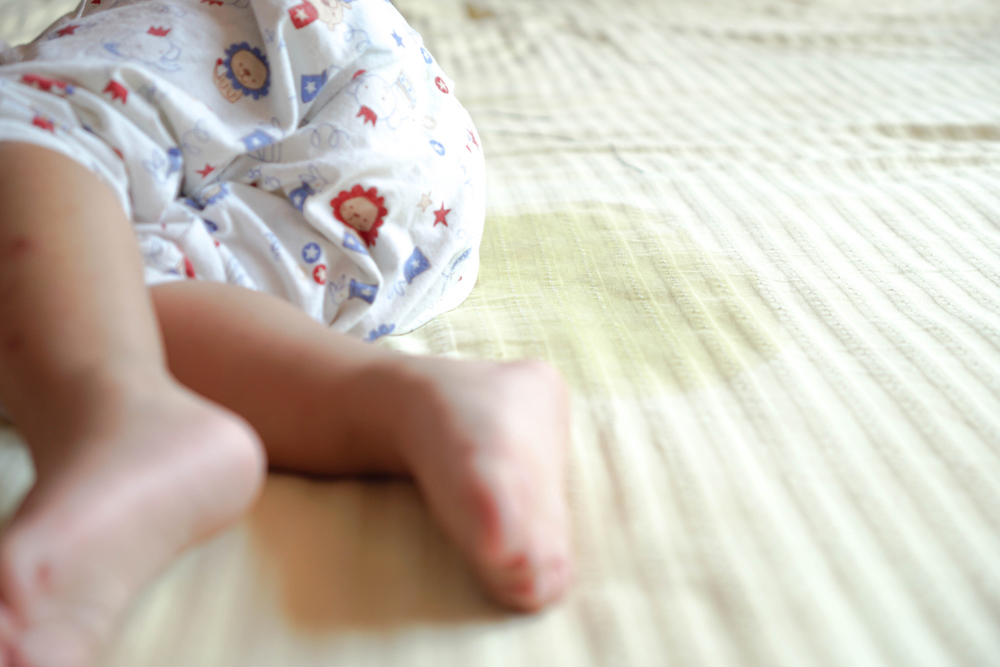Bedwetting
 Bedwetting is a challenge many children overcome as they age. However, if your child is struggling with bedwetting, it may feel overwhelming as a parent to try and solve this problem. Experts believe that 15 to 20% of children between the ages of 5 and 7 wet their bed occasionally, with the numbers dwindling as they age. Various factors cause children to wet the bed, including stress or genetics. Bedwetting is not a severe medical condition, but it can stir up negative feelings in you and your children. Overcoming bedwetting begins with communicating with your child, as well as enlisting the help from your pediatrician when necessary.
Bedwetting is a challenge many children overcome as they age. However, if your child is struggling with bedwetting, it may feel overwhelming as a parent to try and solve this problem. Experts believe that 15 to 20% of children between the ages of 5 and 7 wet their bed occasionally, with the numbers dwindling as they age. Various factors cause children to wet the bed, including stress or genetics. Bedwetting is not a severe medical condition, but it can stir up negative feelings in you and your children. Overcoming bedwetting begins with communicating with your child, as well as enlisting the help from your pediatrician when necessary.
Children may wet the bed due to a genetic pattern that is inherited from parents, or aunts and uncles. Bedwetting can also happen due to children having smaller bladders, and not being able to produce a hormone (vasopressin) that weakens urine production during sleep. Older children may wet the bed due to being in a deep sleep, and their brain cannot send enough signals to wake them up. Experiencing traumatic events, stress, a change in routine, or vacation can cause a child to wet the bed.
It is important to talk to your child about the bedwetting to understand why he believes it is happening, as well as how he feels about it. Children may experience shame and embarrassment because of it, and as a parent, remind them it is normal, and it can be resolved. Talk to your child about the importance of consuming liquids during the day, not just at night. Frequently using the bathroom, especially before bedtime, instead of holding it, needs to be implied.
Consider using a waterproof mattress cover and having a clean set of sheets nearby to help them recover if they awaken to a wet bed. Experts believe that the motivation to end bedwetting needs to come from the child, and not the parent. That is why talking openly about the bedwetting and how it can be resolved is so important. When your child understands that he can control the situation, he may be more inclined to take the steps needed. For instance, minimizing liquid intake at night, and practicing regular bathroom trips are good routines to establish and enforce.
If bedwetting begins occurring out of the blue when you child is over the age of 7, it could be time to visit your pediatrician. Your child’s pediatrician can run scans for health problems such as sickness, constipation, sleep apnea, or a urinary tract infection. Reach out to your pediatrician with questions or to schedule an appointment if you are noticing a wet bed repeatedly.
Source:
Children’s Hospital of Philadelphia
Healthy Children.org
Back to Archive
